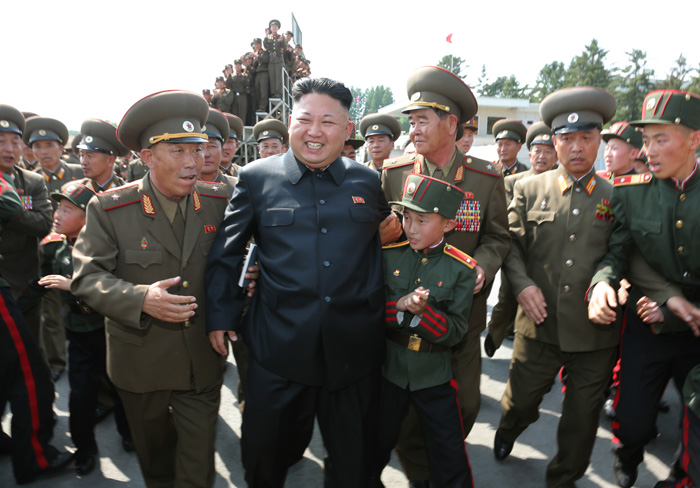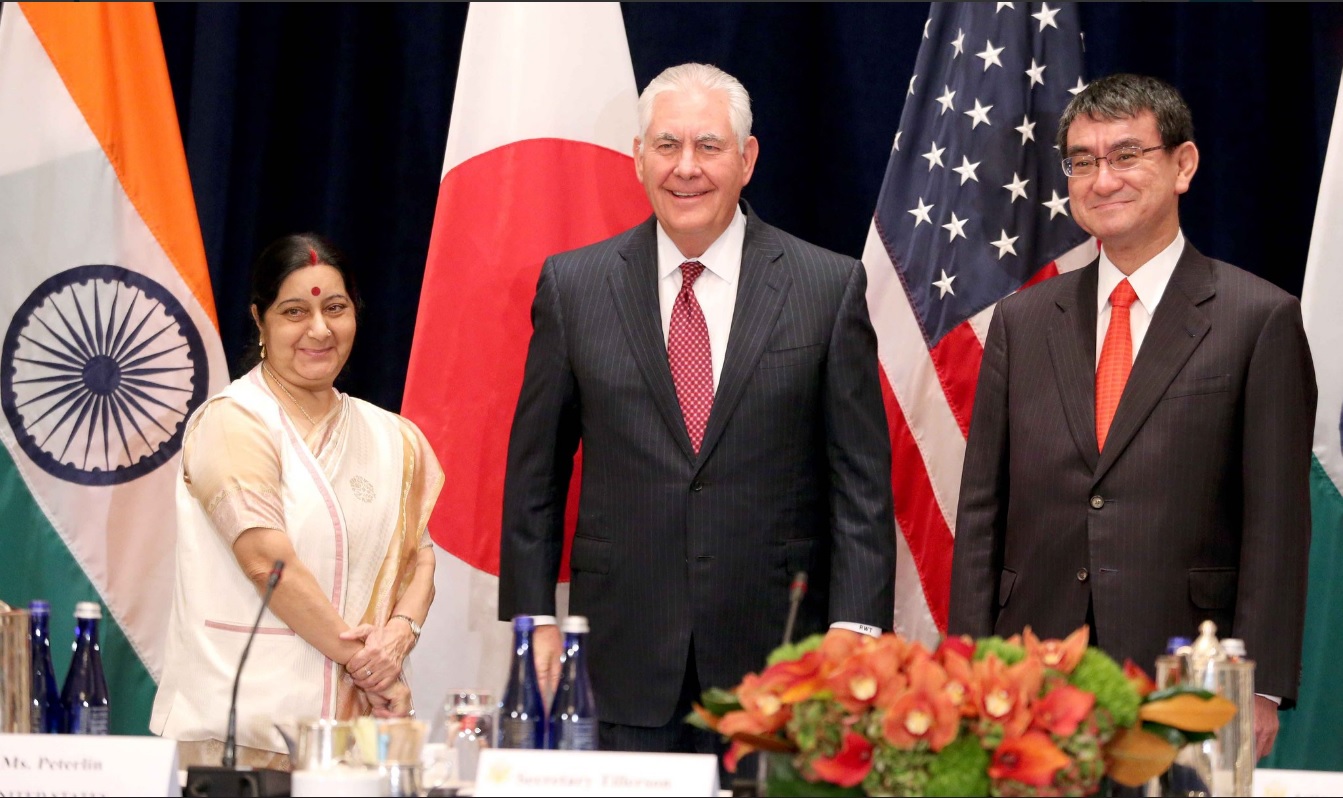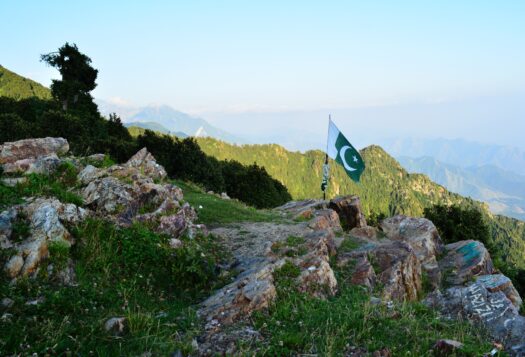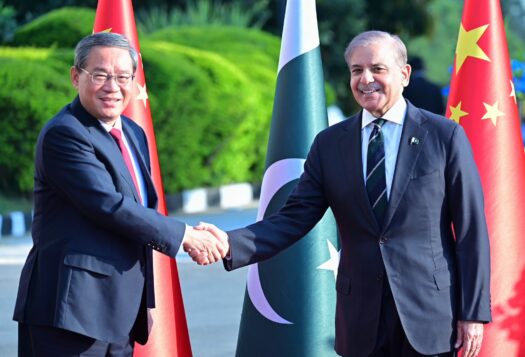
India appears to be undertaking a new approach towards North Korea, with whom it has historically enjoyed good relations. In addition to deploring North Korea’s actions at the United Nations (UN) recently, MEA representatives have now repeatedly said that the country’s “proliferation linkages must be explored” and those involved be held “accountable“. Since there is little India can do to meaningfully influence security on the Korean peninsula, what could its primary motives be? This calculation seems to be motivated by three objectives: to call attention to Pakistan’s proliferation links, foster a closer relationship with the United States, and signal to Beijing, Washington, and India’s partners in the region its interest in a more robust Asian presence. Ultimately, any strategy that entails strengthening Indian partnerships with the United States and regional powers such as Japan is indicative of India’s inclination to take on a leadership role in Asia as a counter-balance to China.
While North Korea’s nuclear and missile tests have elicited concern, India has previously not taken a forceful stand on the matter. North Korea may be a security issue, but it has certainly not been as pressing as other threats. Bilateral diplomacy has been consistent as have trade links. In fact, last year, India was noted as North Korea’s second-largest trading partner. But in April, India stopped all trade with North Korea, except food and medicines. This shift in India’s North Korea approach is thus important for three reasons because, in the larger picture, it could give fresh impetus to Indian foreign policy in Asia.
Firstly, through a repeated emphasis on holding responsible those who may have supported North Korea’s nuclear program, India can draw attention to Pakistan’s proliferation record without, at least at this stage, directly referring to it. While Pakistan is not known to have substantially assisted North Korea in its nuclear ambitions, Islamabad transferred centrifuge technology to Pyongyang under Dr. A.Q. Khan. The stress on North Korea’s proliferation links comes after India stopped providing technical training to North Korean students at the Dehradun-based Center for Space Science and Technology in Asia and the Pacific (CSSTEAP) when it was discovered in 2016 that this was in violation of UN sanctions. With India more strictly abiding by the spirit and letter of UN sanctions on North Korea, it is in a position to use the North Korean proliferation issue to double-down on Pakistan.
Secondly, there seems to be closer alignment between India and the United States on North Korea. The Indian policy community has discussed at length the essentially transactional nature of Trump’s foreign policy, and what deals India could strike with the United States that would be advantageous to both. India’s more vociferous condemnation of North Korea as a result of Washington urging Delhi to “scale back” its ties could be a useful foreign policy calculation in this regard. Significantly, as mentioned earlier, India has halted all trade with North Korea barring medicine and food as per UN sanctions stipulations. India has censured North Korean actions, which by itself is not out of the ordinary. There is, however, a change in tone—the condemnation appears more emphatic now. This, combined with the ending of most bilateral trade, and the recent trilateral India-Japan-United States foreign ministerial meeting on the sidelines of the UN General Assembly in New York where North Korea was the focus of the discussion, point to the changing nature of New Delhi’s approach towards Pyongyang.

Finally, the trilateral meeting in New York, India’s recent statements regarding North Korea, and the summit-level meeting between Modi and Abe all point to India’s intention to entrench itself more firmly in Asia. The trilateral foreign ministerial meeting, where proliferation issues were also discussed, may be suggestive of an emerging consensus among these countries on at least the tone of diplomatic messaging on North Korea. Whereas Modi-Obama joint statements “expressed concern” and “urged” North Korea to work towards “denuclearization” and “comply fully with its international obligations”, the June 2017 Modi-Trump statement “strongly condemned DPRK’s continued provocations” and pledged to “work together to counter the DPRK’s weapons of mass destruction…” Similarly, the September 2017 Modi-Abe joint statement “condemned in the strongest terms” North Korea’s nuclear and ballistic missile programs.
This would naturally make China wary in a region it considers itself the steward of, coming as it is fresh on the heels of the India-China military standoff at Doklam. India’s message seems clear: it will not back down, and in support of its Act East Policy, will continue to tie up with like-minded countries who are also worried about China’s expanding footprint to work together on regional security issues. This would be welcomed by both Washington and Tokyo, which share the same concerns about China’s increasing sphere of influence (and North Korean behavior).
Thus, India’s revised approach towards North Korea is not really intended for North Korea at all. By closing its distance with the United States, bolstering existing regional partnerships, drawing attention to Pakistan’s proliferation record, and signaling its intent to lead from the front in Asia along with partners as a potential counter-balance to China, India appears to have made a strategic calculation that has the potential for significant diplomatic dividends.
***
Image 1: Prachatia via Flickr
Image 2: MEA India via Twitter


